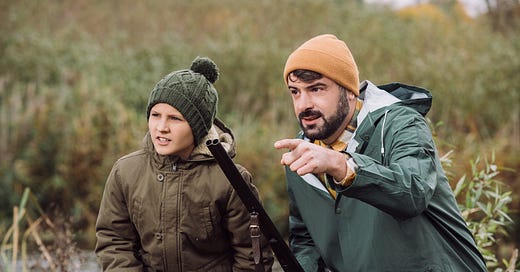In the Crosshairs of Ethics: A Vegan Perspective on Hunting and Fur Trapping
Animal Rights | Vegan Activism
The ethical discourse surrounding hunting and fur trapping is a multifaceted dialogue that beckons attention from diverse viewpoints. This exploration, from the lens of a vegan activist, seeks not only to unravel the immediate impact on animal welfare but also to illuminate the broader repercussions on ecosystems, biodiversity, and ethical living.
‘‘Hunting and fur trapping unfold ethical complexities. From a vegan activist's standpoint, they demand a critical reevaluation of our relationship with animals. This challenges societal norms, urging a more compassionate stance towards both creatures and ecosystems, disrupting established ethical landscapes.’’
Duality of Hunting
In the contemporary context, where alternative food sources abound, the ethical justifications for hunting as a means of sustenance come under scrutiny. Vegan activists posit that the necessity for hunting has waned, prompting a reevaluation of the moral grounds for taking the lives of sentient beings.
Proponents of hunting often argue its role in population control and wildlife management. However, vegan activists counter that such claims may be overstated, advocating for non-lethal methods like habitat management and sterilization as more effective and humane alternatives.
Moreover, the assertion that hunting contributes to sustainable food production is challenged. The majority of meat in developed countries is sourced from factory farms, notorious for inhumane practices. In contrast, hunting in natural habitats disrupts ecosystems and poses potential risks to human health through disease transmission.
Cruelty of Fur Trapping
Fur trapping, intertwined with the fashion industry, faces ethical scrutiny for its inherent cruelty. Vegan activists contend that methods like steel-jaw traps cause extreme suffering to animals caught unintentionally. Trapped animals endure physical injuries, dehydration, and exposure to harsh conditions, leading to a painful demise.
Vegan activists argue that the pursuit of fur for fashion contradicts principles of compassion and respect for life. The demand for fur fuels the trapping industry, perpetuating a cycle of cruelty and unnecessary suffering.
Beyond individual suffering, fur trapping's impact extends ecologically, disrupting predator-prey dynamics and altering food chains. Trapped animals, often not targeted for their fur, include species of conservation concern, exacerbating biodiversity challenges.
Ecological Consequences
Hunting and fur trapping, viewed holistically, unveil profound ecological consequences. Vegan activists champion a conservation model that eschews lethal methods, emphasizing the interconnectedness of ecosystems.
Hunting's disruption of predator-prey dynamics and alteration of food chains can lead to imbalances and instability. Removal of top predators can result in overgrazing by herbivores, damaging ecosystems.
Fur trapping's impact on small mammal populations has cascading effects, disrupting vital ecosystem processes. Vegan activists assert that maintaining biodiversity and preserving natural habitats offer more sustainable approaches to coexisting with wildlife.
Action Steps
Vegan activists can leverage their passion for animal welfare by taking tangible steps to effect change. First, engaging in educational outreach helps spread awareness about the ethical concerns surrounding hunting and fur trapping. Partnering with like-minded organizations amplifies impact, fostering a collective voice for change. Advocacy through social media platforms enables activists to reach wider audiences, influencing public opinion. Supporting and promoting cruelty-free alternatives in fashion and lifestyle choices contributes to reducing demand for animal products. Actively participating in legislative advocacy and lobbying for stricter regulations on hunting and trapping practices reinforces legal protections for animals. By fostering a community committed to ethical living, vegan activists play a vital role in shaping a more compassionate and sustainable future.
Summary
From the vegan activist's perspective, the ethics of hunting and fur trapping necessitate a profound examination of our relationship with animals, the environment, and consumption patterns. As we strive for a more compassionate world, shifting towards a culture of respect, empathy, and non-violence becomes imperative. Embracing cruelty-free alternatives in fashion and food choices stands as a pivotal step towards a more ethical and sustainable future for both humans and animals.




